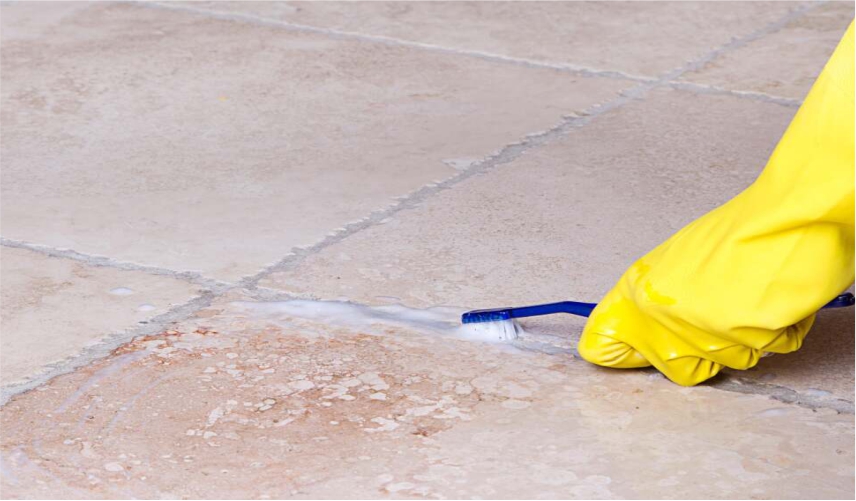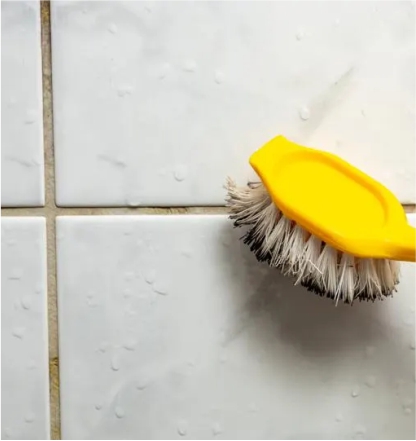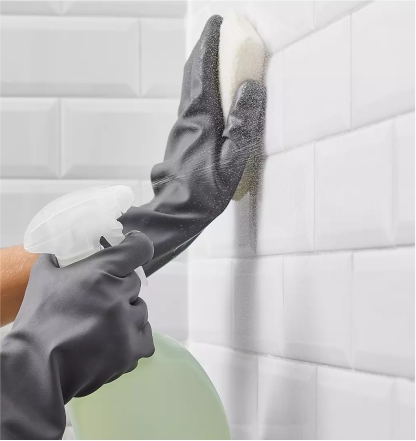
Grout is an essential element in tile installations, providing stability and aesthetics to surfaces. It's crucial to maintain grout properly to ensure its longevity and appearance. One common household cleaning agent often considered for grout cleaning is bleach. However, is bleach really the best choice? In this blog, we'll explore the impact of bleach on grout and offer alternative solutions for effective and safe grout maintenance.

The Chemistry of Bleach and Grout
Bleach, typically a chlorine-based solution, is known for its powerful disinfecting and cleaning properties. It's effective at killing bacteria, and viruses, and removing stains on various surfaces. However, when it comes to grout, the story is different.
Grout is a porous material, usually made of cement, which means it can absorb liquids. Bleach, being a highly reactive substance, can alter the chemical composition of grout. The harsh chemicals in bleach can weaken the structure of grout over time, making it more susceptible to damage and deterioration.
Discoloration and Fading
One of the most noticeable effects of using bleach on grout is discoloration. While bleach may initially remove stains and brighten the grout, prolonged exposure can lead to fading and a noticeable color change. This can result in an uneven and unattractive appearance, defeating the purpose of using bleach for cleaning.
Weakening of Grout Integrity
As bleach penetrates the porous surface of grout, it can gradually break down the bonds that hold the material together. This weakening effect can lead to cracks, chips, and overall deterioration of the grout. Over time, this compromises the integrity of the entire tiled surface.
Potential Health Hazards
Another important consideration when using bleach for grout cleaning is its potential impact on indoor air quality. Bleach fumes can be harmful when inhaled, especially in poorly ventilated areas. Using bleach in enclosed spaces may pose health risks, making it a less desirable option for regular grout maintenance.


Alternative Grout Cleaning Solutions
Fortunately, there are safer and equally effective alternatives to bleach for grout cleaning. Here are some options to consider:
1. Vinegar and Baking Soda
A mixture of vinegar and baking soda can serve as a powerful, natural cleaning solution for grout. The mild acidity of vinegar helps dissolve stains and grime while baking soda provides gentle abrasion for tougher spots.
2. Hydrogen Peroxide
Hydrogen peroxide is an excellent alternative to bleach. It's less harsh on grout while still effectively removing stains and disinfecting surfaces. Simply apply it to the grout, let it sit for a few minutes, and then scrub it with a brush.
3. Commercial Grout Cleaners
There are many specialized grout cleaning products available on the market. Look for those specifically designed to be gentle on grout while still providing effective cleaning power.
While bleach is a powerful disinfectant and stain remover, it's not the best choice for grout cleaning. Its harsh chemicals can lead to discoloration, weakening of grout, and potential health hazards. Opting for alternative, grout-friendly cleaning solutions ensures a longer lifespan and a more aesthetically pleasing appearance for your tiled surfaces. Remember, regular maintenance with the right products will keep your grout looking its best for years to come.